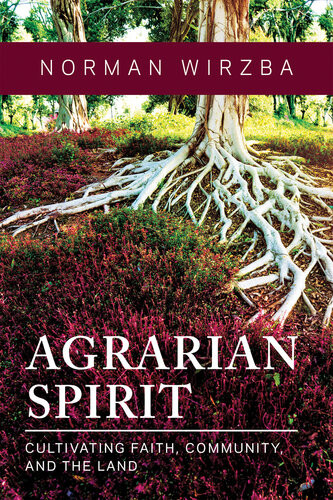

Most ebook files are in PDF format, so you can easily read them using various software such as Foxit Reader or directly on the Google Chrome browser.
Some ebook files are released by publishers in other formats such as .awz, .mobi, .epub, .fb2, etc. You may need to install specific software to read these formats on mobile/PC, such as Calibre.
Please read the tutorial at this link: https://ebookbell.com/faq
We offer FREE conversion to the popular formats you request; however, this may take some time. Therefore, right after payment, please email us, and we will try to provide the service as quickly as possible.
For some exceptional file formats or broken links (if any), please refrain from opening any disputes. Instead, email us first, and we will try to assist within a maximum of 6 hours.
EbookBell Team

4.0
96 reviewsThis refreshing work offers a distinctly agrarian reframing of spiritual practices to address today's most pressing social and ecological concerns.
For thousands of years most human beings drew their daily living from, and made sense of their lives in reference to, the land. Growing and finding food, along with the multiple practices of home maintenance and the cultivations of communities, were the abiding concerns that shaped what people understood about and expected from life. In Agrarian Spirit, Norman Wirzba demonstrates how agrarianism is of vital and continuing significance for spiritual life today. Far from being the exclusive concern of a dwindling number of farmers, this book shows how agrarian practices are an important corrective to the political and economic policies that are doing so much harm to our society and habitats. It is an invitation to the personal transformation that equips all people to live peaceably and beautifully with each other and the land.
Agrarian Spirit begins with a clear and concise affirmation of creaturely life. Wirzba shows that a human life is inextricably entangled with the lives of fellow animals and plants, and that individual flourishing must always include the flourishing of the habitats that nourish and sustain our life together. The book explores how agrarian sensibilities and responsibilities transform the practices of prayer, perception, mystical union, humility, gratitude, and hope. Wirzba provides an elegant and compelling account of spiritual life that is both attuned to ancient scriptural sources and keyed to addressing the pressing social and ecological concerns of today. Scholars and students of theology, ecotheology, and spirituality, as well as readers interested in agrarian and environmental studies, will gain much from this book.